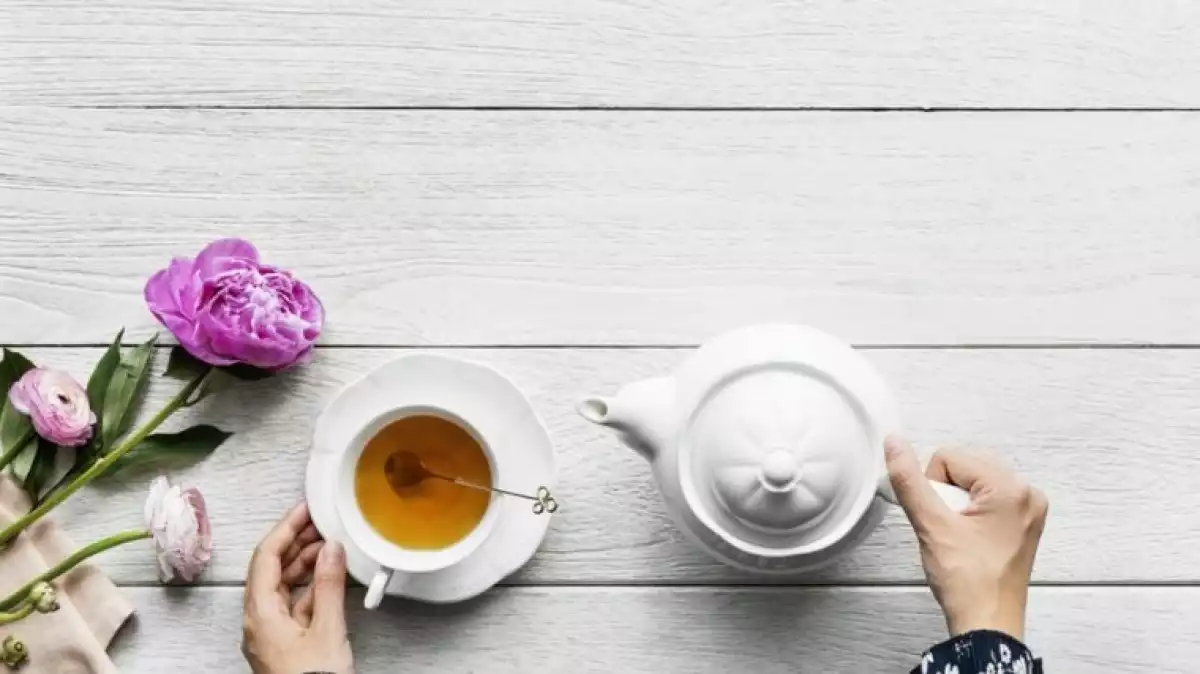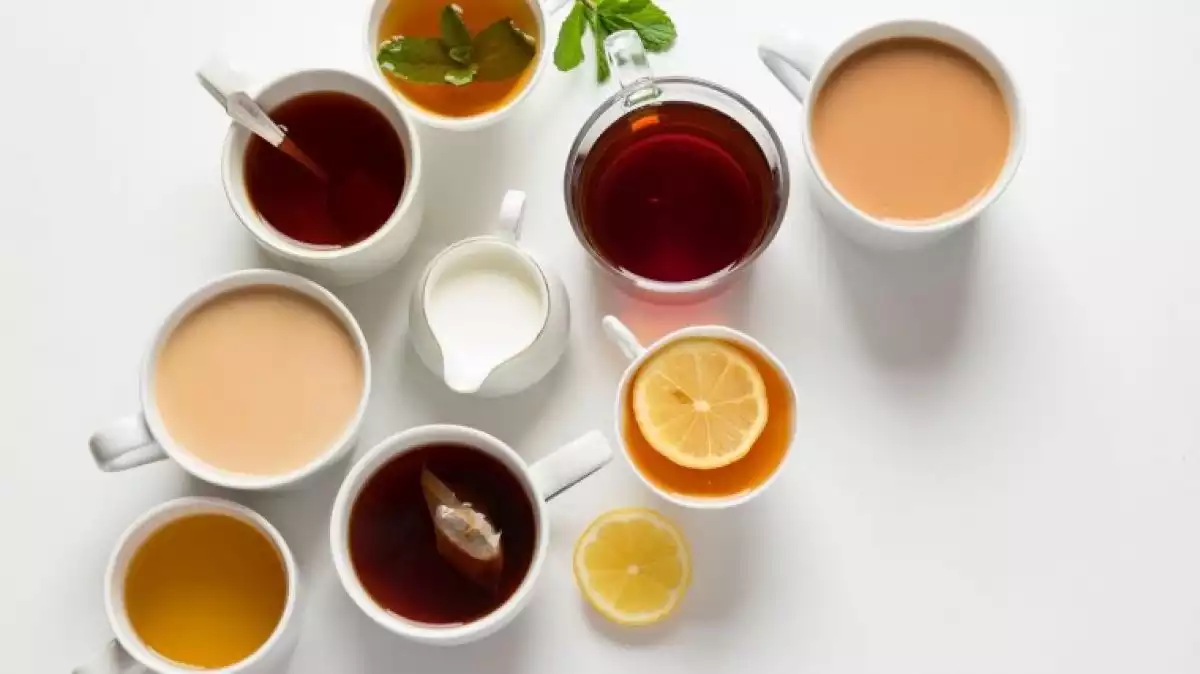
Linden tea is an herbal infusion made from the linden tree or 'tilia.' Linden tea has many benefits since it is capable of relaxing the body and has anti-inflammatory properties, besides many others that we'll share with you below.
In this article, we take a look at what linden tea is, what it's good for, and its main benefits. Also, we'll compare it with other flowers like orange blossom and valerian. Finally, we'll explain linden's side-effects and contraindication, especially for pregnant women.
Linden tea: What it's good for
Tea and linden flower are drinks that come from different parts of the fruits, roots or aromatic herbs that steep in boiling water. In other words, both tea and linden are infusions. The difference is that they come from different types of trees. The plant that tea comes from is also known as Camellia sinensis, and it is a traditional hot beverage with many benefits.
Linden tea comes from the fruit of the linden tree. This species belongs to the Tilia genus, which a variety of plants with different traits and all kinds of nutritional and medicinal benefits are a part of.
So, instead of calling this drink 'linden tea' we should really be calling it a 'linden infusion.' In any case, linden is good for many things. For example, it has relaxing effects, and it can also work as a pain reliever and other benefits that we'll see later on.
Related: Infusions (With And Without Caffeine): Types And Benefits
Linden tree: origin and types
The linden tree has its roots in continental Europe, stretching from the Cantabrian mountains and the Pyrenees to central Russia. This tree has also been present in the British Isles for a millennium, especially the southern part, as well as in some parts of the Scandinavian peninsula.
This tree that linden flower comes from can reach heights of between 20 and 30 meters. Its leaves are large and cordiform in shape with serrated edges, and its fruits come in the form of a white colored flower.
You can find different varieties of linden in different areas, the most well-known being the classic tilia cordata from Europe, the tilia americana in North America and the tilia mexicana or basswood tree in Mexico. These trees are all highly valued for their medicinal properties in traditional cultures.
Linden tea benefits
Linden tea is one of the most renowned and consumed herbal infusions in the world because of its effects as a sedative as well as its other health benefits. As with other herbal teas, its benefits are enhanced when you drink it on a regular basis in moderation. Below we highlight 6 linden tea benefits that will make you want to try this infusion.
1. Relaxing effect
One linden tea benefit that almost everyone knows is its ability to relax the body. The calming effects of this plant are highly sought and as an infusion, it can reduce nervousness, anxiety, stress, and even symptoms of insomnia.
That's why this herbal tea is the perfect natural remedy for people that need to relax after a long day at work or for those that have trouble getting to sleep.
2. Nutritional value
Species that belong to the Tilia genus have a significant nutritional value due to the sheer number of active ingredients that they contain. Here are a few of the main active ingredients found in linden flower tea: quercetin, caffeic acid, terpineol, eugenol, nerol, alpha-pinene, and limonene.
Most of these elements that linden contains are present in many aromatic herbs and other infusions that we'll take a look at later on. These main active ingredients benefit the body in many ways and can even prevent specific pathologies and diseases.
3. Anti-inflammatory effect
Linden tea also has anti-inflammatory and anti-spasmodic properties. Thanks to these effects, this herb is ideal for treating rheumatism, headaches, and stomachaches, or any other localized inflammation in the body.
Keeping this in mind, consuming linden tea can have benefits when it comes to relieving muscle pain and swelling. Drinking two cups of linden flower tea for a few days can help to soothe these types of pain.
4. Relieves menstrual pain
This benefit is related to the prior one: relieving menstrual pain. This is possible, again, thanks to the antispasmodic and anti-inflammatory properties of this flower.
As in the case of muscle pain and inflammation, here you should also try to drink two cups of linden tea a day to soothe cramps during the menstruation.
Related: Menstrual Cycle: Definition And Disorders
5. Treats respiratory problems
Another little-known benefit of this flower with medicinal properties is that it can help ease respiratory issues like coughing, asthma, or excess phlegm. On the same note, consuming this plant can serve to ease some of the effects typical of viruses, infections, and colds. However, this infusion alone might not relieve the symptoms of these illnesses, depending on the case.
5. Other benefits of linden tea
Other linden tea benefits include: reducing uric acid in the body, diuretic effects, lowering blood pressure, and antioxidant and detoxifying effects. In large part said benefits depend on the following factors: the amount and frequency with which this herb is consumed, how it interacts with other substances (natural or pharmaceutical), and most of all, the seriousness of the health condition.

Does 7 blossom tea contain linden flower?
Linden is one of the flowers found in 7 blossom tea or in Spanish 'té de los 7 azahares.' The other 6 plants in this drink are orange blossom, lemon balm, citron, passionflower, lemon, valerian, and white sapote.
Thanks to the mix of all of these herbs, 7 blossom tea is an herbal infusion that serves to calm the nerves, and therefore get sleep as well. It has a similar effect to linden tea, but its flavor is more complex since it is made up of a variety of different flowers.
Linden tea or valerian?
Linden flower and valerian are medicinal herbs renowned for their effects as sedatives. Since these flowers interact with the central nervous system, they contribute to relaxation and sleepiness. However, depending on each case, you might want to choose one plant or the other.
For example, research on alternative sleep treatments shows that, in the case of children between 2 and 12 years old, linden tea is the best option and valerian should be avoided. During pregnancy linden tea is best, but, only in moderation.
During menopause, valerian is more effective, especially when combined with hops. However, this is advised against if the person in question is undergoing hormonal treatment.
On the other hand, those with liver disease should consider passionflower. Both linden flower and valerian should be avoided since they can make symptoms in the liver worse for these people.
Finally, valerian is the plant of choice for those with glaucoma and epilepsy. On the other hand, poppy is advised against since it can raise the pressure in the eyes and can also lead to seizures.
Contraindications and side-effects
Linden tea and valerian should be consumed with caution since both are potent and take effect quickly. There aren't any reported cases of harmful effects related to consuming either of these flowers. However, this hasn't been studied in depth yet either.
The same goes for its interactions with other plants and pharmaceuticals (recreational drugs and medications). When in doubt, it is always a good idea to consume aromatic herbs in moderation. Pregnant and lactating women should be especially careful when considering whether or not to drink linden tea and other herbal infusions.
Related: Passion Flower: Definition, Benefits And Contraindications
References
Dirr, Michael A. (2009). Manual of Woody Landscape Plants (6th ed.). Champaign, IL: Stripes. Pp. 1148–1149.
Márquez Carrasco, A.M., Rico Neto, M., Leo Rodríguez, M.R. (2017). Seguridad de la toma de infusiones herbales en el embarazo: manzanilla, valeriana, tila, té y menta-poleo. Revista Enfermería Docente, julio-diciembre (109): 77-81.
Rivero Morales, B. (2017). Tratamiento fitoterapéutico de las alteraciones del sueño como alternativa a los fármacos de síntesis desde la farmacia comunitaria. Trabajo de Fin de Grado, Facultad de Farmacia, Universidad Complutense.
Rushforth, K. (1999). Trees of Britain and Europe. UK: Collins.
Phillips, Leonard E. Jr. (1993). Joel Stein, ed. Urban Trees: A Guide for Selection, Maintenance, and Master Planning. United States of America: McGraw-Hill. p. 259.
Vallejo, J.R. y Carrasco, M.C. (S/A). Dos especies vegetales usadas como sedante en Extremadura. Universo Extremeño, 12-13.
